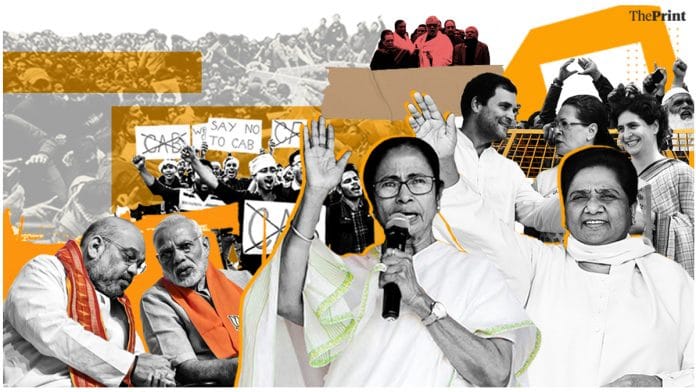Thank you dear subscribers, we are overwhelmed with your response.
Your Turn is a unique section from ThePrint featuring points of view from its subscribers. If you are a subscriber, have a point of view, please send it to us. If not, do subscribe here: https://theprint.in/subscribe/
A colleague with a PhD in environmental studies sharply criticized, “Look at the failure of Modi and his Swachh Bharat Mission,” highlighting the tons of garbage left unattended on the streets of Bangalore.
Modi or anyone in the Union Government is not expected to personally clean the streets of Bangalore or any other city or village in India—that is not their responsibility.
The responsibility for keeping the streets clean doesn’t even rest with state governments but with elected municipalities and panchayats. In the case of Bangalore, it falls under the Bruhat Bengaluru Mahanagara Palike (BBMP), the city’s Municipal Corporation.
Unfortunately, the last elections for BBMP were held way back in 2015. It is almost in a dysfunctional state nowadays.
So clearly people find it difficult to navigate through the complex hierarchies in Indian politics.
India with a population of 1,500 million is too big, Even Indian states like UP with a population 240 million people, West Bengal at 100 millions, Maharashtra at 110 million are too big to manage by a single elected government from the state capital.
The solution lies in decentralization and a fundamental restructuring of India’s political framework.
As of end of 2024, India comprises 788 districts and around 50 metropolitan cities. Instead of the current state-based system, governance should be restructured by dissolving states and replacing them with politically independent districts and metropolitan cities, creating a total of 800+ autonomous entities.
With an average population of nearly 2 million per entity (district and big cities), each would elect one representative to the Indian Parliament, resulting in a streamlined legislature of 800+ members.
This Parliament would hold exclusive responsibility for lawmaking and constitutional reforms, eliminating the need for any state/district legislative assemblies. A single set of laws would apply uniformly across the country, ensuring consistency and efficiency in governance.
So, each district and Metropolitan cities will almost function like todays States.
Each district (or metropolitan city) will elect a Governor, who will head the District Government. All executive powers will rest with the elected Governor, eliminating the need for a local legislative assembly or elected members at the district level.
The Governor will have the freedom to select an executive team from anywhere in the country to effectively deliver on promises made to the electorate.
All law-making powers will remain exclusively with the Union Parliament, where one Members of Parliament (MPs) will be directly elected by the people from their respective districts. These MPs will have no executive authority, ensuring a clear separation between lawmaking and governance. The executive at the autonomus district level will function strictly within the framework of a single, universal set of laws applicable across India, frame by the Union Parliament.
The people across the country will directly elect a President, who will serve as the executive head at the national level. A two-stage presidential election system could be implemented to prevent fragmentation caused by an excessive number of parties and independent contenders in the initial round.
Once elected, the President will have the authority to select an executive team based on merit and capability, ensuring the best individuals are chosen to deliver on the promises and agenda set during the election.
The Union Parliament will hold the authority to impeach the President, Governors, and their executive team if necessary.
Once elected, Members of Parliament (MPs)—who serve as the nation’s lawmakers—should operate independently of the political parties that nominated them, ensuring that there is no party whip in Parliament.
To maintain accountability and prevent power consolidation, executive heads—both the President and Governors—may be limited to two terms of six years each. However, no term limits would be imposed on MPs, allowing experienced lawmakers to continue serving based on public mandate.
This system ensures a clear separation between the executive and the legislature, making them completely independent of each other.
With MPs having no executive power, politics would become less attractive to corrupt individuals and opportunists seeking local influence for personal gain. Without the lure of executive control, the role of an MP would be far less tempting for those driven by power and favoritism. Instead, only serious, mature, and capable individuals would be inclined to contest parliamentary elections, leading to a more competent and principled legislature.
In addition to the separation of the executive and the legislature, law and order should be independent from the executive head of the district or city to ensure fairness and accountability.
Law enforcement is deeply local and directly impacts people’s daily lives. Therefore, police forces should be composed exclusively of local eligible candidates (as discussed in my previous article). Furthermore, the Police Commissioner should be directly elected by the people of the locality from a pool of qualified and relevant candidates, with no involvement of political parties in the selection process. This would keep law enforcement community-driven, accountable, and free from political interference.
Perhaps only citizens aged 30 and above should be eligible to take part in elections (electorate and the elected). Elections are complex affairs, requiring maturity, experience, and responsibility. Political and social opinions alone are not sufficient qualifications, especially for young individuals still financially dependent on their parents.
Democracy demand real-world experience and a deeper understanding of governance beyond ideological enthusiasm.
These pieces are being published as they have been received – they have not been edited/fact-checked by ThePrint


